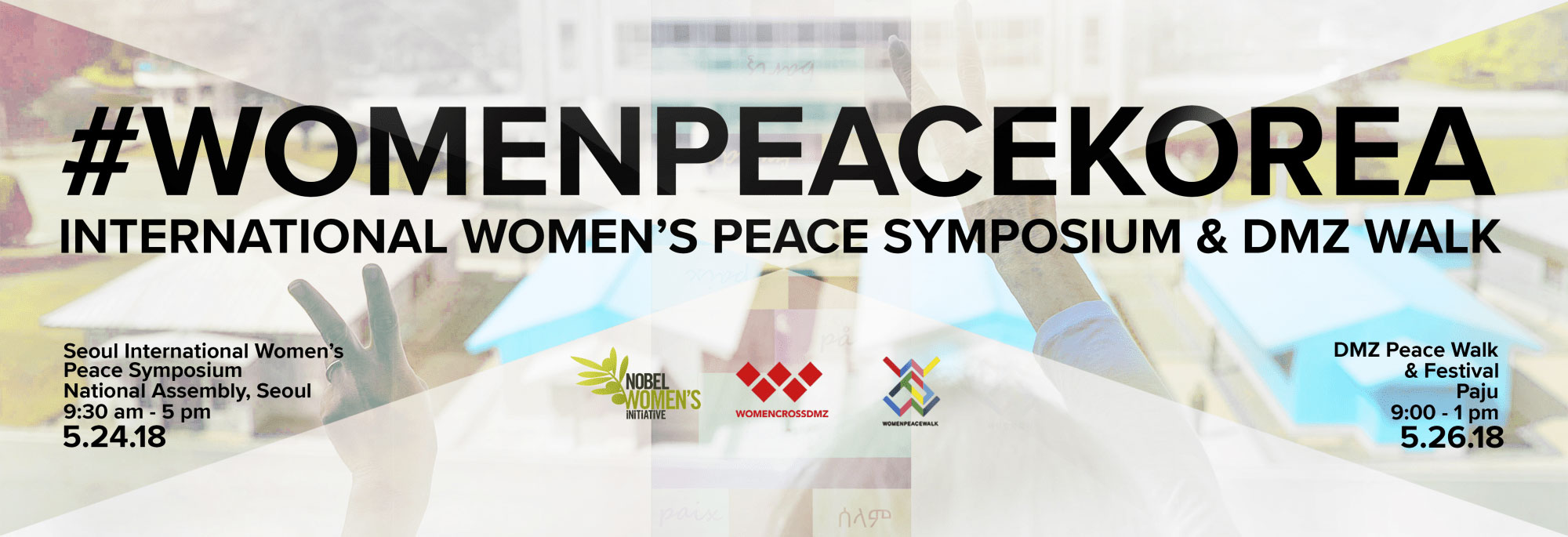
It is a new day for world peace. On April 27th, the South Korean and North Korean heads of state – President Moon Jae-In and Chairman Kim Jong-Un – declared that “there will be no more war on the Korean Peninsula and thus a new era of peace has begun.” They signed the Panmunjeom Declaration for Peace, Prosperity, and Unification of the Korean Peninsula where they outlined sweeping plans to reunite the Korean people through family reunions and civil society exchanges, reduce military tensions by transforming the DMZ and the West Sea into peace zones, and achieve a nuclear-free Korea Peninsula.
The tremendous hope and optimism inspired by this recent diplomatic breakthrough are reflected in the high levels of popular support for the Korean peace process, evident all over the world but no place more clearly than in South Korea with approval for Moon’s diplomacy polling at 85 percent.
Despite a positive international climate, many naysayers have been actively seeking to derail the ongoing diplomacy surrounding the Korean Peninsula, hoping to sour the mood ahead of the historic Trump-Kim Summit in June. While Donald Trump has expressed support by saying, “We hope to see the day when the whole Korean Peninsula can live together in safety, prosperity and peace,” other voices within his own administration have been working to undermine a potentially successful peace summit and threatening military action if talks fail. If these detractors prevail, rather than achieving a peace treaty and de-nuclearization, we will return to facing the prospect of a catastrophic regional war.
This is a risk that women peacemakers in South Korea and North Korea understand all too well and are not willing to accept. The global community has South Korean social movements to thank for the Candlelight Revolution, a popular uprising where 16 million South Koreans took to the streets and staged protests for five months, which led to the ouster of the hardline President Park and the election of President Moon. The Korean people need the support of the international community NOW to ensure that peace, not war, prevails on the Peninsula.
At the forefront of this international effort among civil-society groups to support the Korean peace process is Women Cross DMZ, a movement of women mobilizing to end the Korean War, reunite families, and ensure women’s leadership in peace building. We are joining forces with the Nobel Women’s Initiative, an organization that brings together six women Nobel peace laureates, to organize an international women’s delegation to South Korea on May 23-26.
Delegation to the Republic of Korea
Given the critical window facing the two Koreas, Women Cross DMZ and the Nobel Women’s Initiative believe it is urgent to demonstrate international solidarity with the peace and women’s movements in Korea. Our delegation will ensure that leaders from the two Koreas, United States, China and other countries that participated in the Korean War understand that citizens in these countries and around the world want this peace process to succeed.
In partnership with the Women’s Peace Walk, a coalition of more than 30 women’s peace organizations in South Korea, we are convening an international delegation of thirty seasoned feminist peace activists from across the world, representing peace movements based in Canada, China, Colombia, Guam, Hawaii, Iraq, Israel, Japan, Kenya, Mongolia, Navajo Nation, Northern Ireland, Philippines, Russia, Sweden, United Kingdom, and the United States.
As a global community, we have a responsibility to help finally bring an end to the Korean War. The Korean people need our solidarity at this critical hour, and women’s peace movements will be working together to see through a Peace Treaty that formally ends the Korean War and ensure women’s inclusion in the peace process to build a just and feminist postwar Korea.
Program for the delegation
Seoul International Women’s Peace Symposium
National Assembly Seoul, ROK
May 24, 2018 • 9:30am–5pm
DMZ Peace Walk & Festival
Paju
May 26, 2018 • 9:00am–1pm